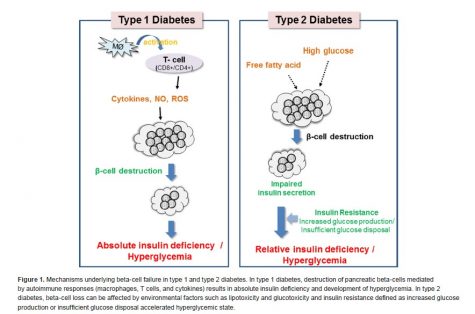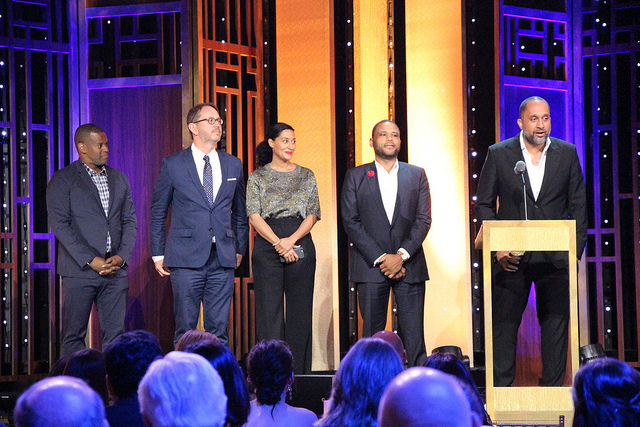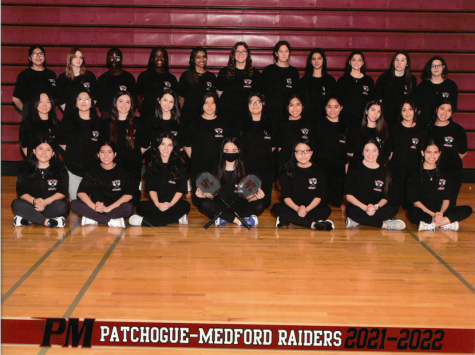Don’t let Diabetes Dia-beat you:
A sitcom and its star shed light on a serious health epidemic in our society
Photo by Flickr Creative Commons
The cast and crew of “Blackish” at the Peabody Awards.
The Long Island Sound- a bright gleaming blue reflecting the waning beams of the fledgling sun as it peaked over the shoreline. The sun, continuing its omnipresent ascent above the skies, like a guardian peacefully keeping watch over its people, lets its rays cut through the glass of just another hospital. The room, whiter than a fresh sheet of snow, and cold enough to antithesize the outside world, sat an ordinary woman, just like you and me. The doctor and her: a blood test that was scheduled to be another routine exercise in both their lives turned out to be nothing of the sort. A sanguine red, rhythmically flowing into the test tubes, with smiles and small-talk filling the room, little did they both know, this was the start of a new journey. Going home, living out her day as she expected: calm, complacent, and at ease. Waking up, the phone shaking her to life, the news was given: she had Type II diabetes.
Unfortunately, Type II diabetes is present in over 400 million individuals globally, and that number is only increasing everyday. In addition, Type II diabetes is not only caused by your own doing: instead, it has been shown to be in-part genetic and the other being your lifestyle. Moreover, the statistics have shown that type 2 diabetes is more prevalent in African-Americans, Hispanics, and Native Americans than that of Caucasians. Now, before anyone begins to become a hypochondriac, do not fear. Just like with anything in life, nothing is a guarantee: we all have to accept that we will be thrown obstacles and have to deal with unforeseen events that try and get in our way. The solution is not to live in a bubble, nor is it to walk around being afraid of foods and drinks; balance, the formula to success in any and all health related concerns is the chief defense any of us have against Type II diabetes.
I am sure you heard your parents, gym teachers, or health advisor tell you that you have to exercise, take your vitamins, watch what you eat, and get a good night’s sleep and they are not just saying that to be a nuisance to you. Statistics have shown and exemplified the risks obesity, unhealthy diets, and lack of exercise can almost double the chances of getting the disease- which is even more severe for those who may be genetically predisposed as it is. For those of you that know your family has a history of this disease, even if you are curious do ask a parent, it is strongly suggested you try and create a balanced diet, work out, and watch your weight. Is it annoying to have to balance so many logistical factors on top of everything else you have to do? Absolutely it is. Yet, think of it like this: would you rather have to worry about prevention now, or worry about having the actual disease and all that it entails? Now, while I may be able to tell you the facts all day it means nothing if you cannot see the value of it in a topical sense. If you don’t want to listen to me, listen to Blackish star Anthony Anderson and his story.

On a recent episode of ABC’s comedy Blackish, starring Anderson himself, the storyline follows Dre, Anthony Anderson’s character, diagnosed with Type II diabetes. The storyline is based, given in a more lighter and comedic tone, on Anderson’s real life battle against the disease, Overall, the underlying message that is conveyed is how crucial an impact the choices you make in the here-and-now will alter the present and future and whether you seek to make that a positive or negative. As depicted in the episode, some people go through a stage of denial, dealing with the idea that they do not have to actually change their life in an ignorant stance that it won’t bother them. The truth is, that this philosophy is deadly: while diabetes can be managed, it is still fatal if ignored. In fact, roughly 1.5 million people died from diabetes in 2015 alone. The point is, as much as nobody wants to have to change, sometimes, it is truly the difference between life and death.
At the end of the day, how you choose to live your life is completely in your hands and your hands only. We all make bad choices, that is the beauty of being human; it is our ability to take in information, to alter our schemas and way of thinking that separate us from other species on this planet. The statistics speak clear as day- life choices and the manner we live does affect us on a level that previously was thought to be dramatized. No- this is far from the truth. Reality has made it evident: we have to think about the long-term impact of how we live now, to enjoy tomorrow.

Grade 12
“Always dream and shoot higher than you know you can do. Don’t
bother just to be better than your contemporaries or predecessors. Try
to...





